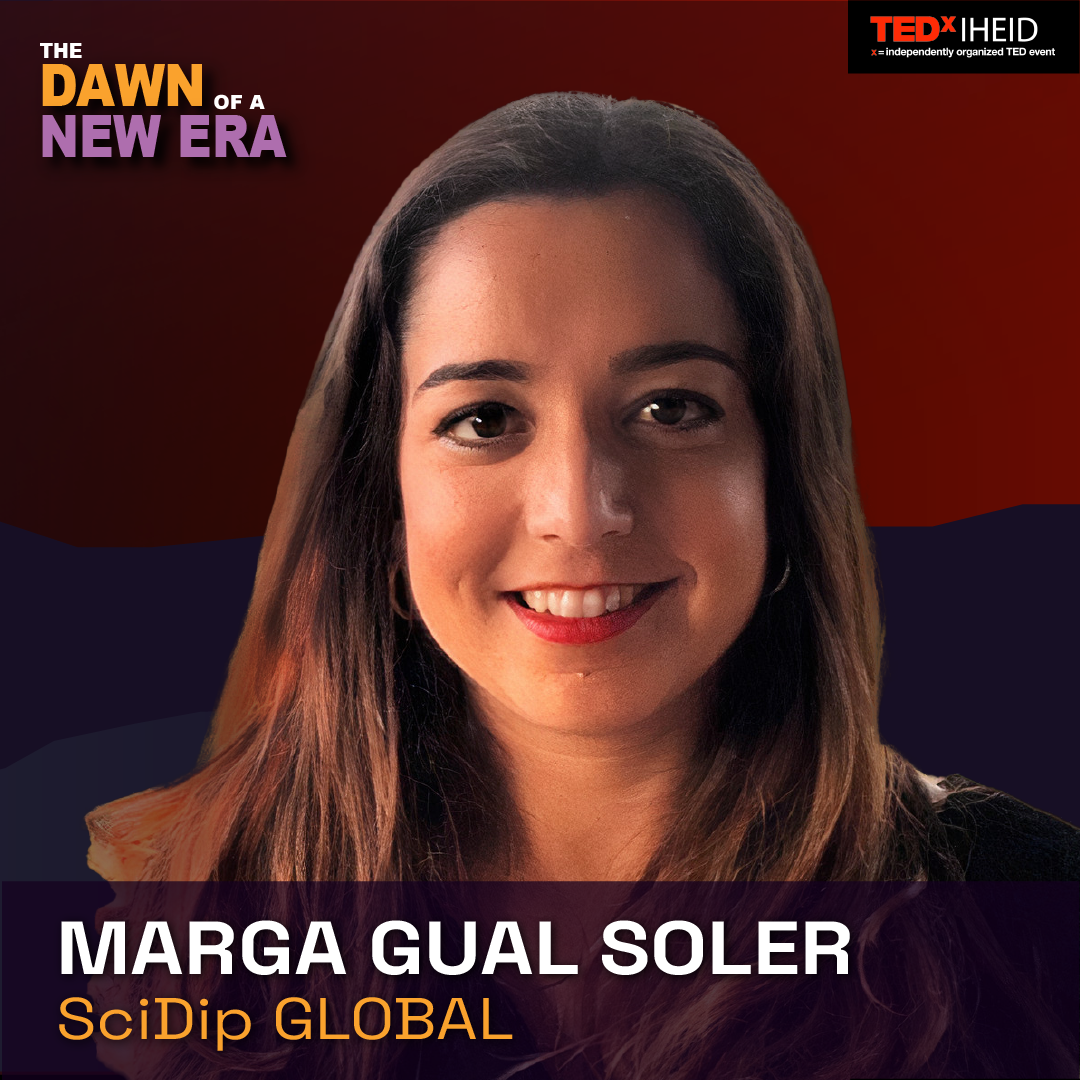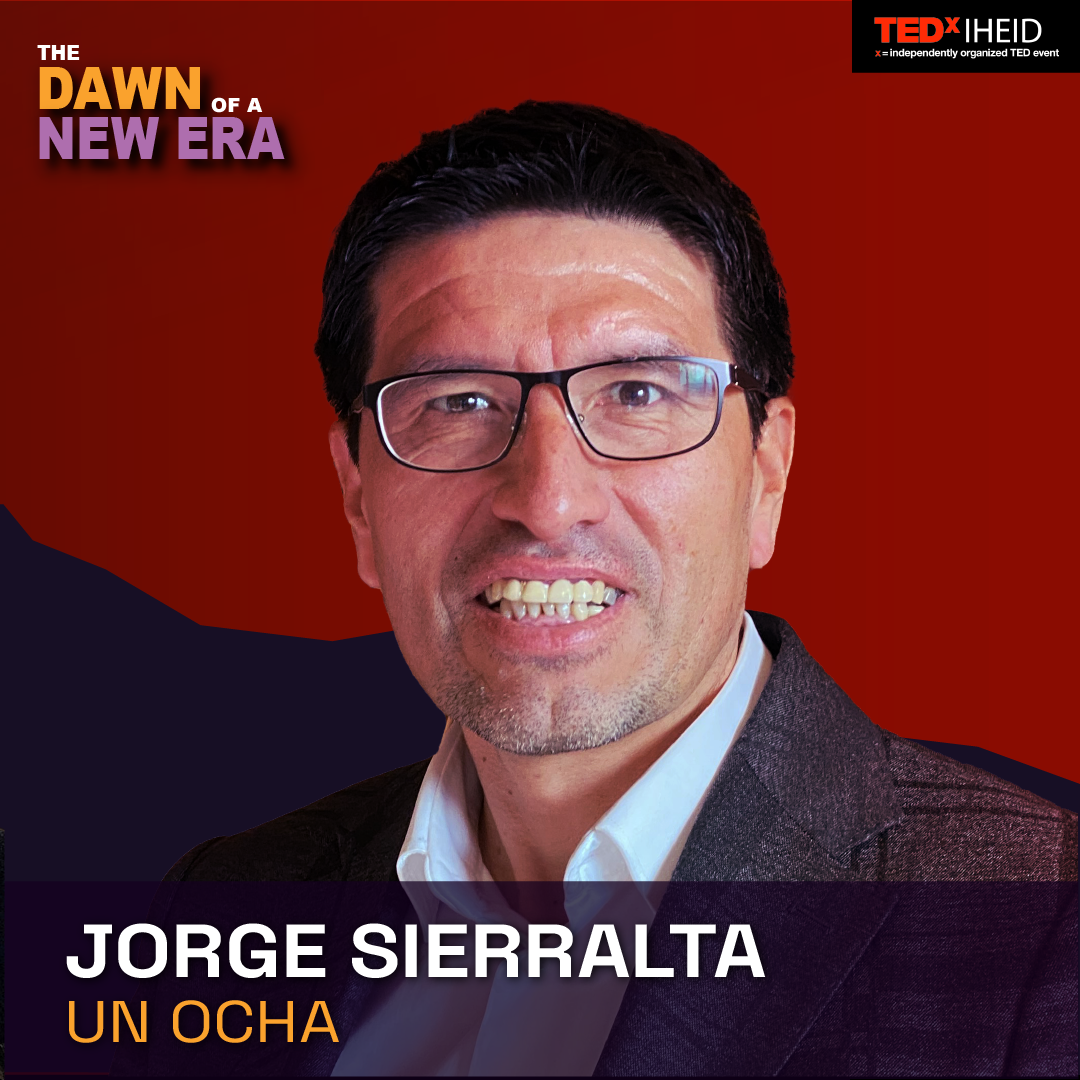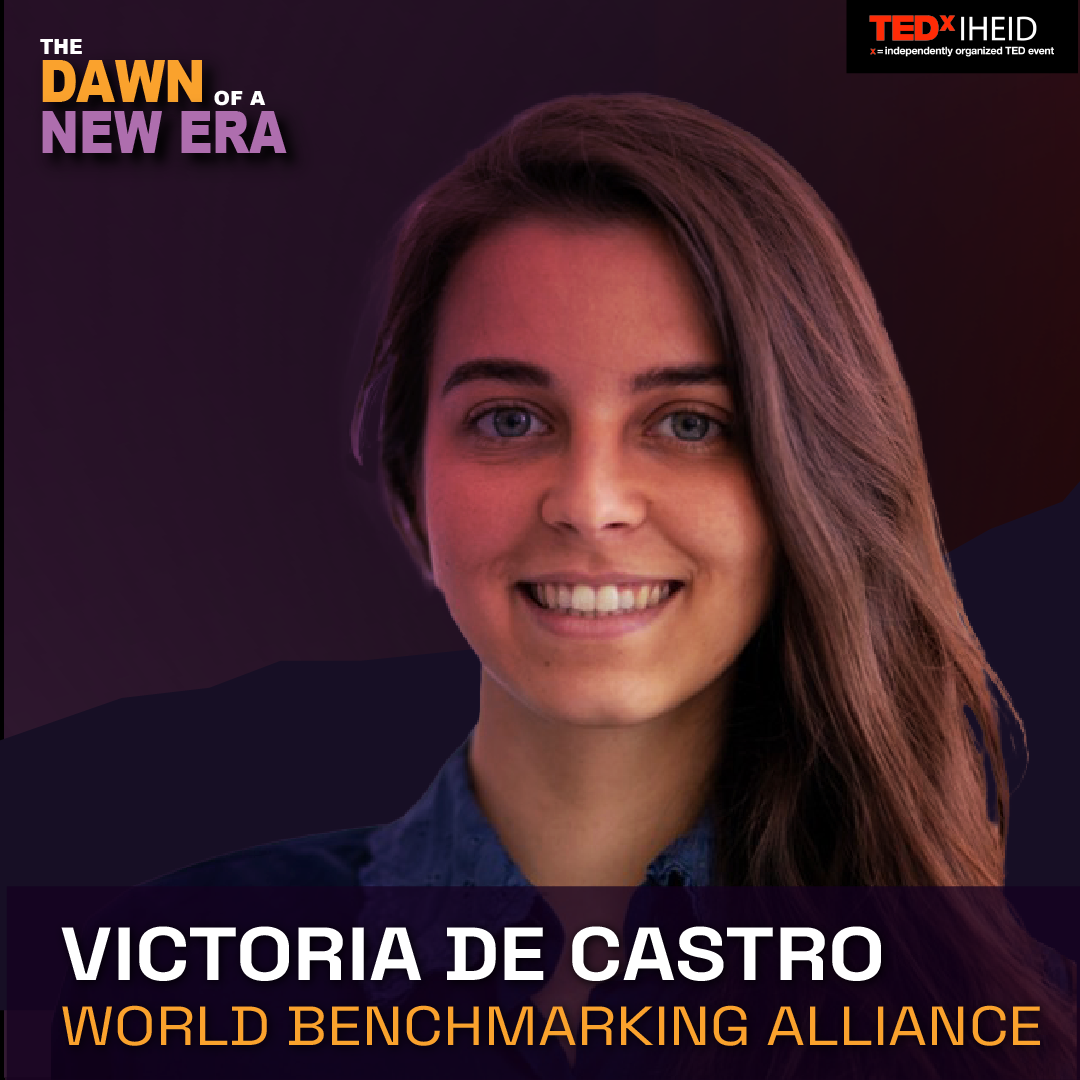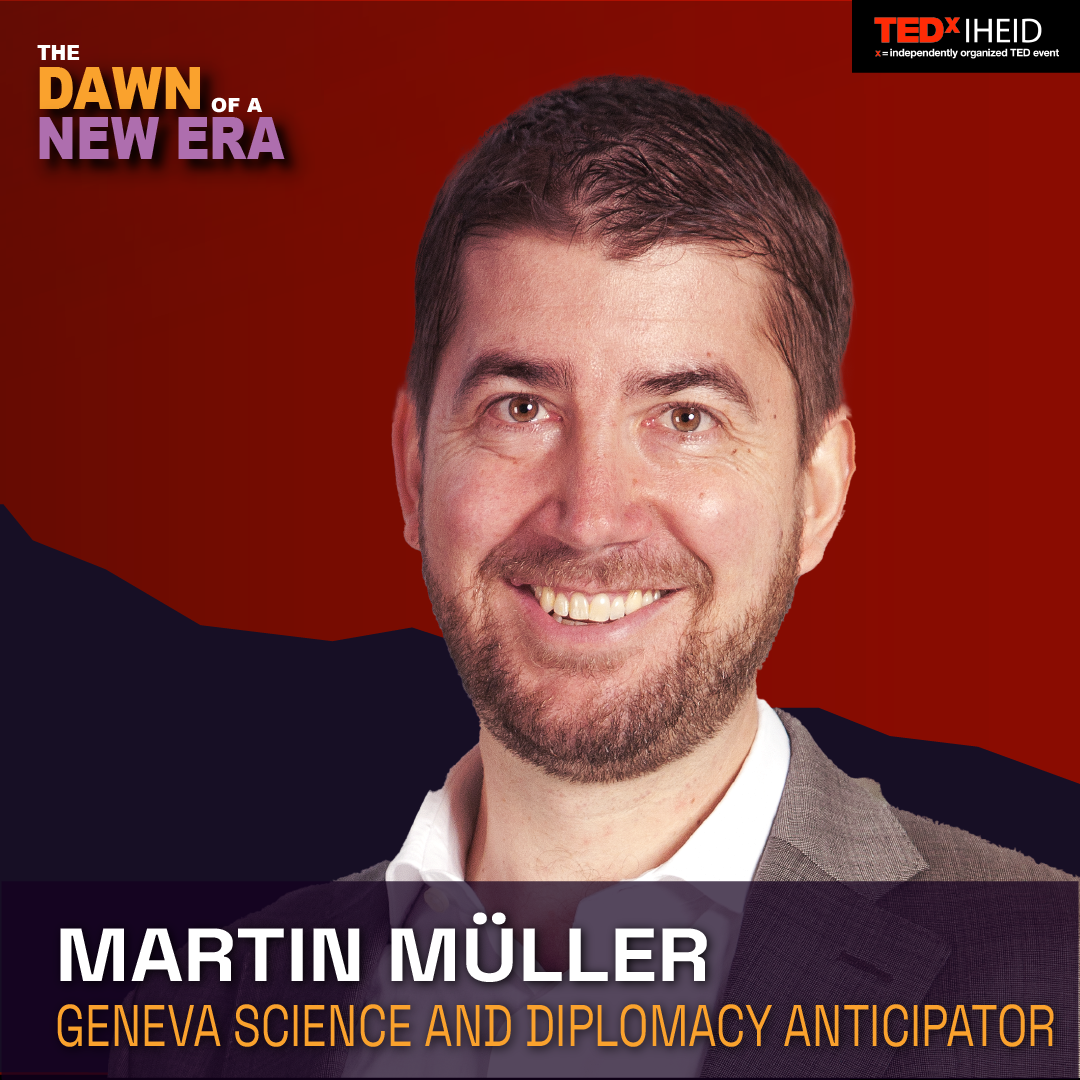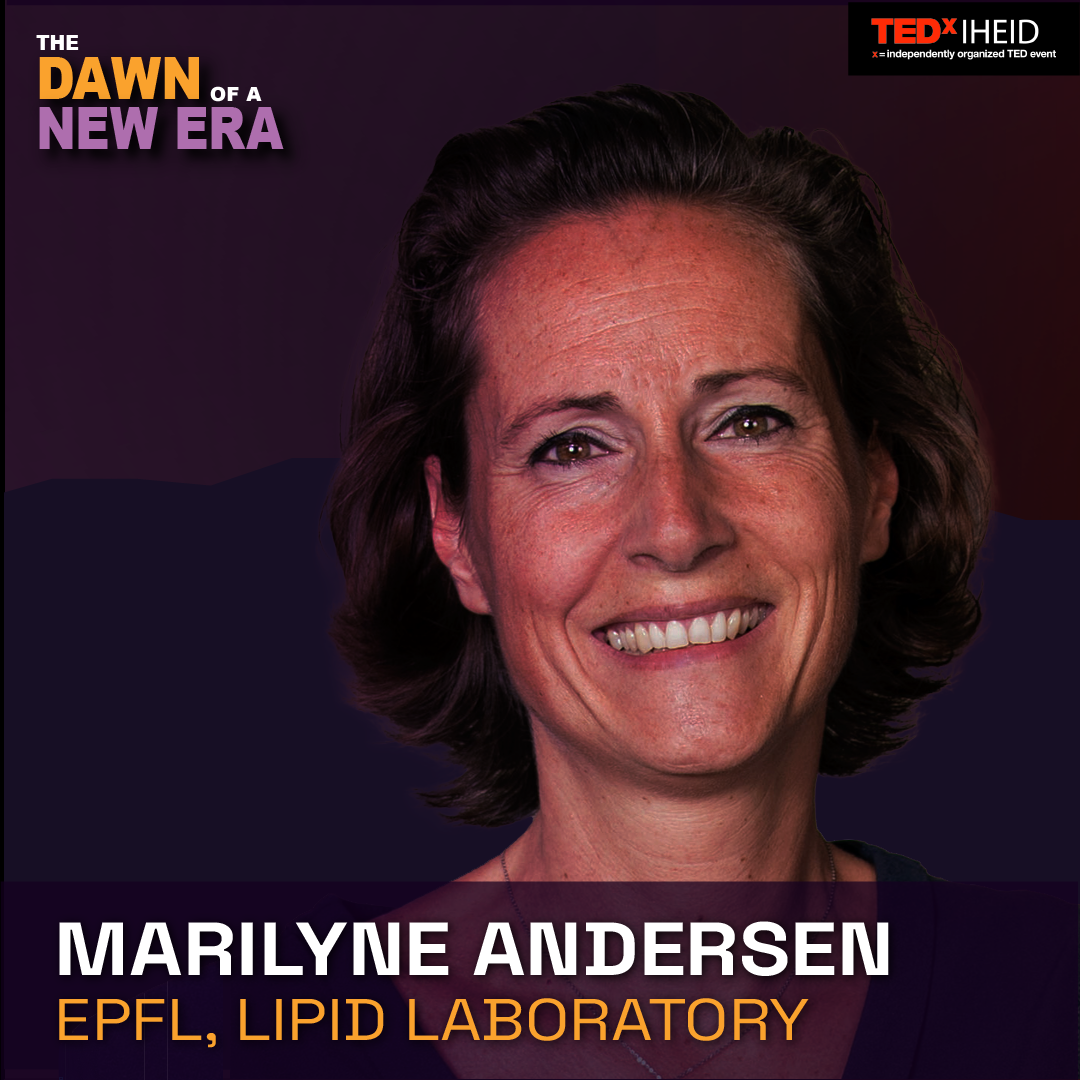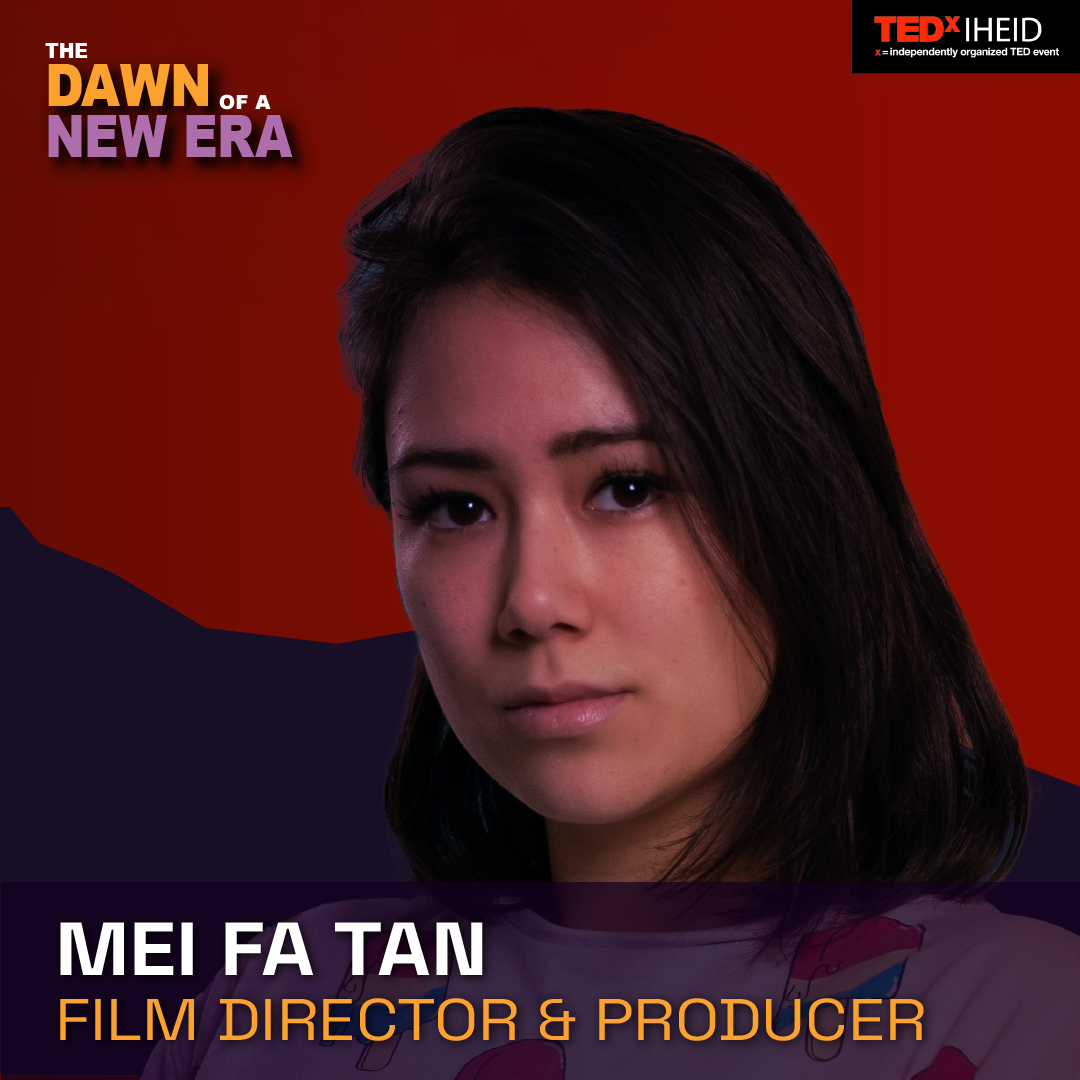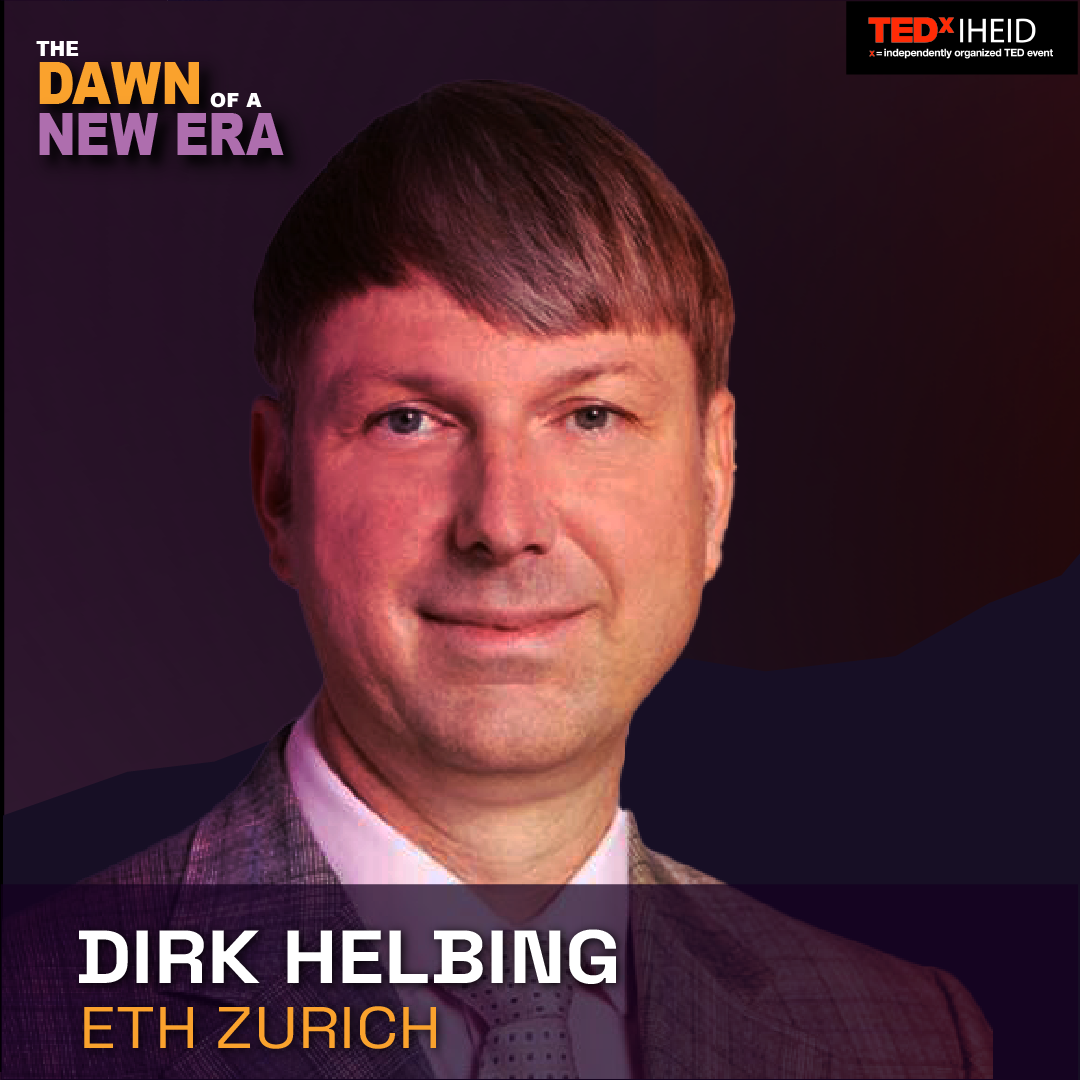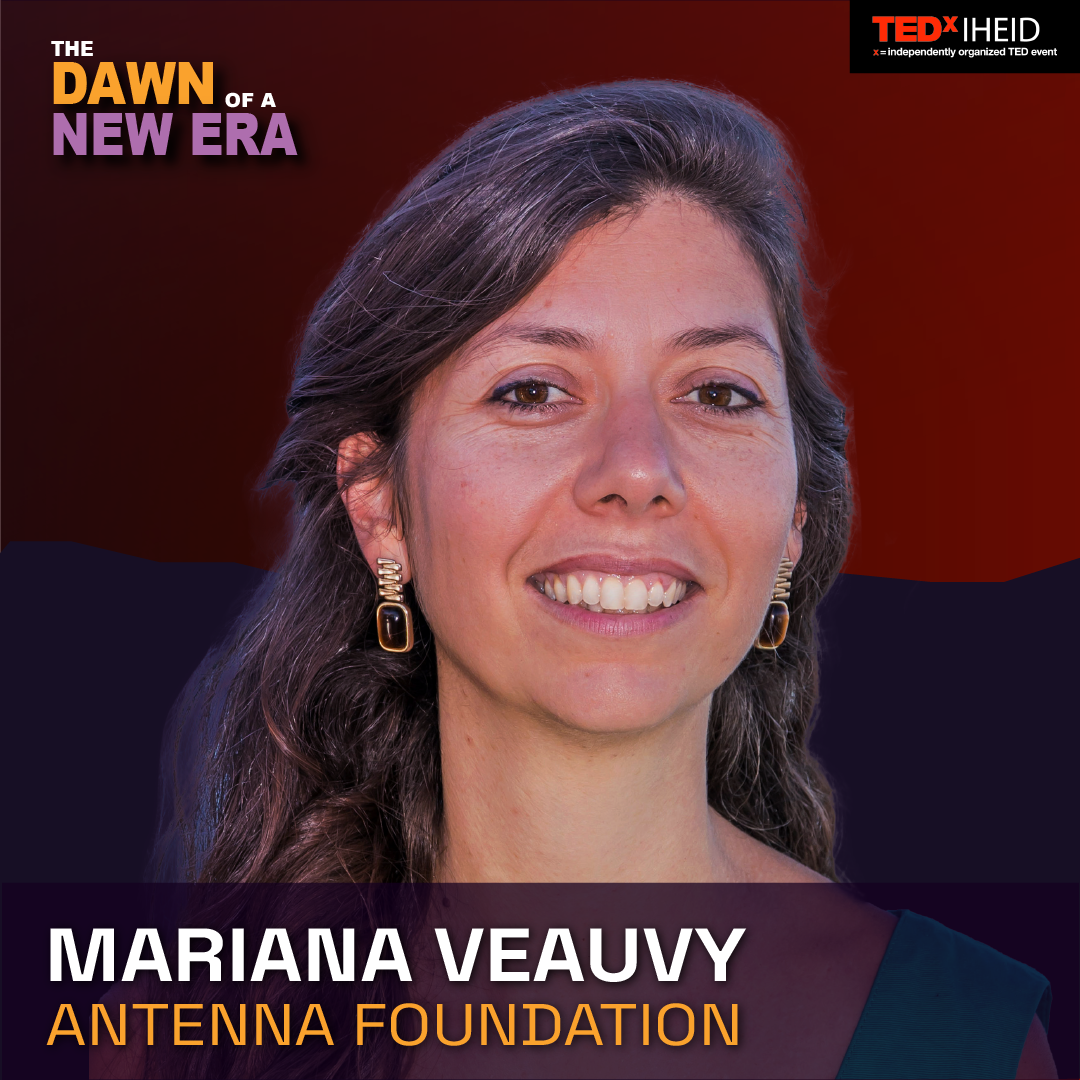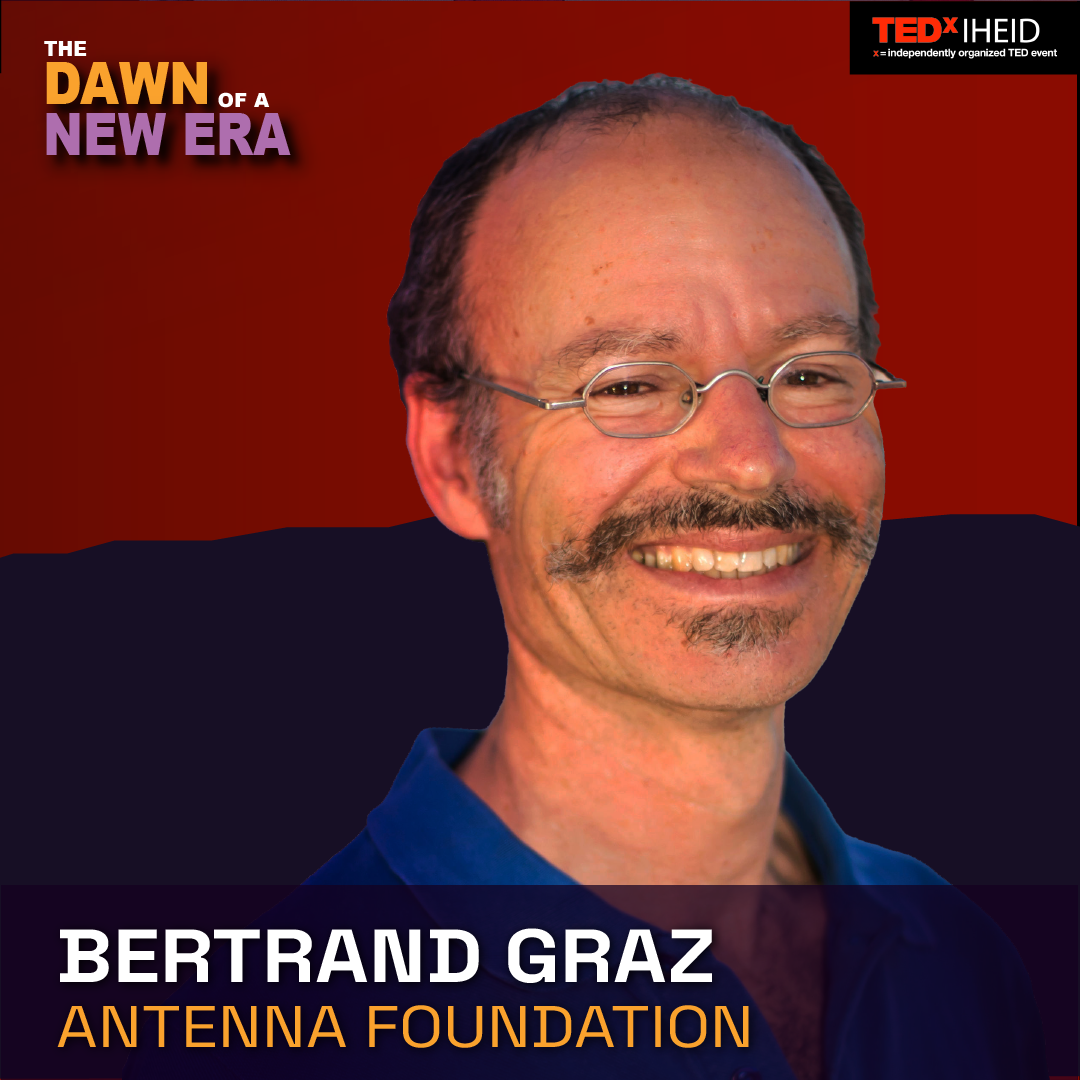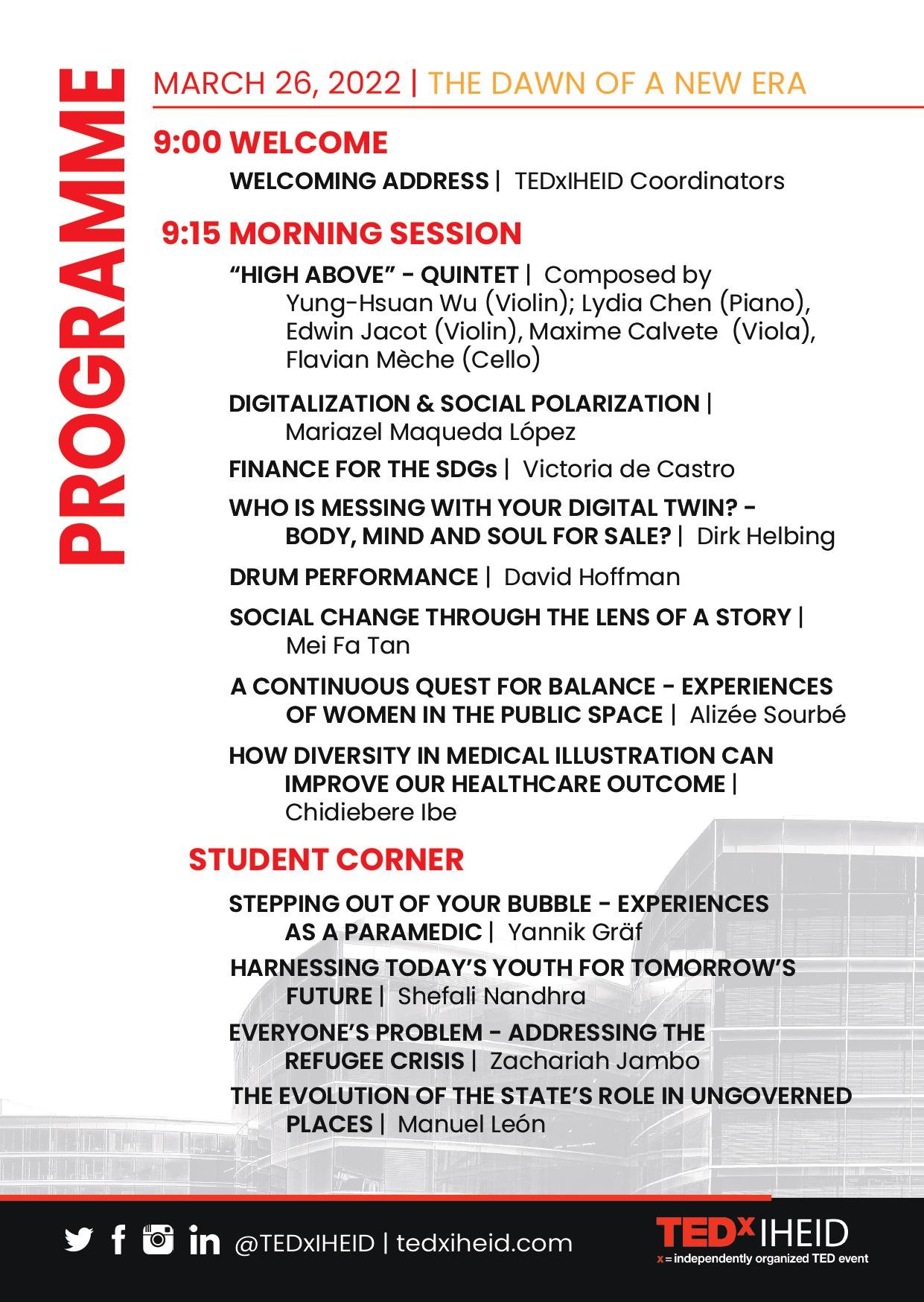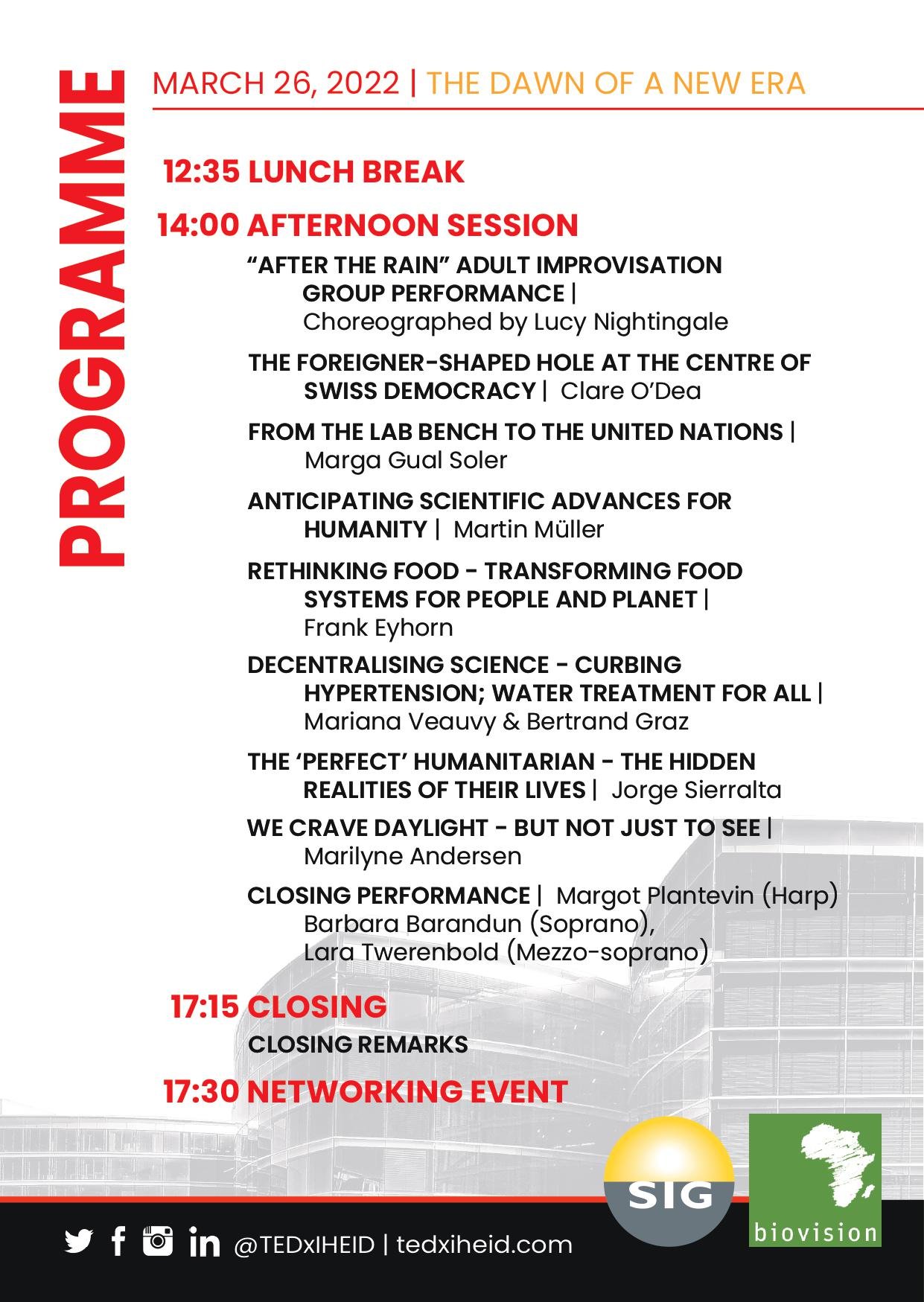
Speakers of the New Era
Alizée Sourbé is a dancer & choreographer. She created Bleue, a feminist and multidisciplinary dance company. Her artistic work comes from a desire to denounce harassment and gender discrimination. The ambitions of her company are to allow all people who consider themselves as women to express themselves and to raise awareness of the female cause. It is through representation, visual, auditory and sensitive expression that she communicates her message of militancy.
Dr. Marga Gual Soler is a science diplomat bridging the world through science. She is the founder of SciDipGLOBAL, a purpose-driven advisory, strategy, research and training firm helping governments, universities, international organizations and scientific institutions strengthen the role of science in global policy for a renewed multilateralism. A molecular biologist by training, Dr. Gual Soler has been one of the pioneers in building science diplomacy as a field of research, policy and education worldwide. She supported the science diplomacy strategies of several Latin American countries, Spain and the European Union and promoted scientific cooperation between countries under political strain, notably helping rebuild scientific cooperation between the United States and Cuba following the diplomatic normalization of 2015. She is most passionate about developing the next generation of science and diplomacy leaders to tackle global challenges. In 2019 she participated in the largest-ever women in STEM expedition to Antarctica to elevate women's leadership in sustainability and climate action, and in 2020 was recognized as a ‘Young Global Leader’ of the World Economic Forum. Currently, she is the Senior Science Diplomacy Advisor to the GESDA and Program Director of the inaugural Science Diplomacy Week 2022.
Jorge Sierralta is the Chief Staff Counsellor at the United Nations Office for the Coordination of Humanitarian Affairs (OCHA). He is an enthusiastic, skilled and well-motivated PhD Clinical Psychologist with a track record of leading different Counseling Units and promoting the welfare of UN staff in various challenging environments. He has solid experience in providing specialist psychological assessments, quality individual and group counseling services, crisis and mental health emergency services in Asia and Africa for the past 15 years.
Victoria de Castro is a sustainable finance expert at the World Benchmarking Alliance ranking 400 keystone financial institutions worldwide against their social and environmental performance. Victoria has assessed sustainability profiles of many financial institutions, including banks, insurance companies, pension funds, asset managers, and sovereign wealth funds. She believes that all financial institutions should align with planetary boundaries and be socially just. In a globalized world, a systemic approach is necessary for the global sustainable transition to happen as fast as it needs to. Victoria holds a MSc in Innovation, Human Development and Sustainability from the University of Geneva, an MPA for the SDGs from Tsinghua University in Beijing, and a BSc in Economics from the Federal University of Rio de Janeiro, Brazil. After starting her professional career in public sector economics in Brazil, Victoria pivoted to sustainability and sustainable finance on the global stage. Geneva was the place where it all began.
Mariazel Maqueda López pursued her bachelor and master studies in telecommunications and nanotechnologies at several prestigious European universities (University of Granada, Spain; Polytechnic University of Turin, Italy; and Grenoble Institute of Technology; France). In 2017, she achieved her PhD in Microsystems and Microelectronics from the Swiss Federal Institute of Technology in Lausanne (Switzerland). After a lifetime of volunteering in the communities where she lived, she decided to travel to Kenya and volunteer in the slums of Nairobi under the guidance of the nonprofit organization Amani. This experience made her decide to professionally put her skills at the service of the most vulnerable people from that moment onwards, in what she would herself define as a "life epiphany". After this, she worked for three years for international nonprofit organisations in the field of sustainable development in Geneva (SéCoDev, Caritas Internationalis and B Lab Switzerland). In November 2020, she joined the EPFL EssentialTech Centre to kickstart its newly created PeaceTech Division. Since then, she leads the PeaceTech Division’s activities to leverage in-house digital and physical tech-driven innovation to prevent violence and conflict and promote peace in the online and offline realms, with a special focus in fighting against technology-facilitated gender-based violence. She is driven by a deep will of bridging solutions based on multi-disciplinary approaches to the existing needs of the developing contexts.
Martin Müller is Executive Director of the Academic Forum at GESDA – the Geneva Science and Diplomacy Anticipator. As such, he acts as interface with the global science community and leads the rolling development of the Science Breakthrough Radar (https://radar.gesda.global), GESDA’s tool for science anticipation. Prior to joining GESDA, Martin was heading SwissCore – the Swiss Contact Office for Education, Research and Innovation (ERI) – in Brussels, working at the interface of science, science policy and diplomacy. In this role, he helped shape the involvement and safeguard the influence of Swiss ERI organizations with respect to the European Union, its institutional bodies and related organisations, at a critical time in Swiss-EU relations. In addition, he held leadership roles in pan-European science organizations, such as chair of the Science Europe working group on Horizon Europe, the EU’s €80 billion research and innovation programme, and coordinator of a pan-European initiative on strategic planning and funding for large research infrastructures. Martin has a background in communication systems and obtained his PhD in biomedical engineering from ETH Zurich in 2012.
Marilyne Andersen is Full Professor at EPFL and Head of the LIPID Laboratory. With a background in physics, she conducts research on performance as a driver for design, with an emphasis on daylight and a focus on questions of comfort, perception and health, thereby reaching out to other fields of science, from chronobiology and neuroscience to psychophysics and computer graphics. She was a tenure-track professor at MIT from 2004 to 2010, was Dean of the ENAC School at EPFL from 2013 to 2018, is Academic Director of the Smart Living Lab and co-founder of the consulting startup OCULIGHT dynamics. Author of over 200 refereed scientific papers with several distinctions, she was the inaugural laureate of the global Daylight Research Award in 2016 and led the winning Swiss team for the US Solar Decathlon 2017 competition.
Frank Eyhorn is an established expert in sustainable agriculture and food systems with more than 20 years of experience in international cooperation. He is passionate about transforming food systems through innovative practices, supportive policy frameworks and increased investment in agroecological solutions. With a PhD in environmental science, he has conducted extensive research and published various educational materials and scientific articles. In 2020, he became the CEO of Biovision, a Swiss foundation promoting and supporting ecological development in Africa, Switzerland and globally.
Since 2011, Mei Fa has worked as a freelance film director and producer in Switzerland. She has directed several short films, including Time Machinery (2019), which toured festivals around the globe. Mei Fa imagines critically acclaimed narrative and creative films for the music video industry. With her music video “PTTFLR” (2018) for Fabe Gryphin, she was awarded in 2019 at the Solothurner Filmtage and in 2021, “Power” for Muthoni Drummer Queen was named Best Swiss Video Clip of the year at the M4Music Festival. In 2016, she joined the team of the prestigious Montreux Jazz Festival, directing a diversity of films for live music. Naturally curious, Mei Fa has shot projects all over the world, from Switzerland, Canada, Kenya and the United Arab Emirates. Between music, fiction and narration, Mei Fa explores humanity through personal and inspired film creations.
Dirk Helbing is Professor of Computational Social Science at the Department of Humanities, Social and Political Sciences at ETH Zurich and affiliate of its Computer Science Department. Furthermore, he is member of the external faculty of the Complexity Science Hub Vienna. In January 2014, Prof. Helbing received an honorary PhD from Delft University of Technology (TU Delft). Shortly later, he was also affiliate professor at the faculty of Technology, Policy and Management at TU Delft for some years, where he led the PhD school in "Engineering Social Technologies for a Responsible Digital Future“. Dirk Helbing started as a physicist. With his diploma thesis, he initiated the area of pedestrian, crowd, and evacuation modeling and simulation. During his PhD and habilitation in physics, he helped to establish the fields of socio-, econo- and traffic physics. He was also co-founder of the Physics of Socio-Economic Systems Division of the German Physical Society (DPG). The work of Prof. Helbing is documented by hundreds of media reports and publications, among them more than 10 papers in Nature, Science, and PNAS. He won various prizes, including the Idee Suisse Award. He co-founded the Competence Center for Coping with Crises in Complex Socio-Economic Systems (CCSS), the Risk Center, the Institute for Science, Technology and Policy (ISTP), and the Decision Science Laboratory (DeSciL). While coordinating the FuturICT initiative (www.futurict.eu), he helped to establish data science and computational social science in Europe, as well as global systems science.
Mariana VEAUVY is French and Brazilian. She holds a Master's degree in Marine Biotechnology from the University of Nantes, France. After working with a start-up on micro-algae, she did technology transfert from research institutions to projects in countries in Asia, Africa, and South America. Mariana joined the Antenna Foundation in 2016. Initially, she was in charge of the New Technologies Unit and supervised water and nutrition projects in India, Ghana, Morocco, and Brazil. She is currently in charge of coordinating the foundation's Excutive Committee.
Dr Bertrand Graz, MD, MPH, has a doctorate in Medicine (with a thesis on traditional medicines for trachoma in the Sultanate of Oman), a master in public health/international health (John Hopkins University, Baltimore), and a certificate in tropical medicine (SwissTPH, Basel). He has practiced in public health and clinical medicine in Switzerland, India, China, Laos, Mauritania, Haïti, Guinea, Senegal and Mali. He now works for the Antenna Foundation in Geneva and studies whether some underused locally available therapeutic resources are effective and safe for the treatment of common diseases (in cooperation with universities, clinics and research Institutes in Geneva, Zurich, Saint-Louis, Southampton, …).
Former Irish Times journalist Clare O’Dea worked for ten years at the Swiss Broadcasting Corporation (swissinfo.ch) before publishing two non-fiction books – The Naked Swiss: A Nation Behind 10 Myths (2016) and The Naked Irish: Portrait of a Nation Beyond the Clichés (2019). Originally from Dublin, she is now a dual Swiss-Irish national. Her first novel, Voting Day (2022), is set in Switzerland in 1959 on the day male voters said no to granting women the vote.

